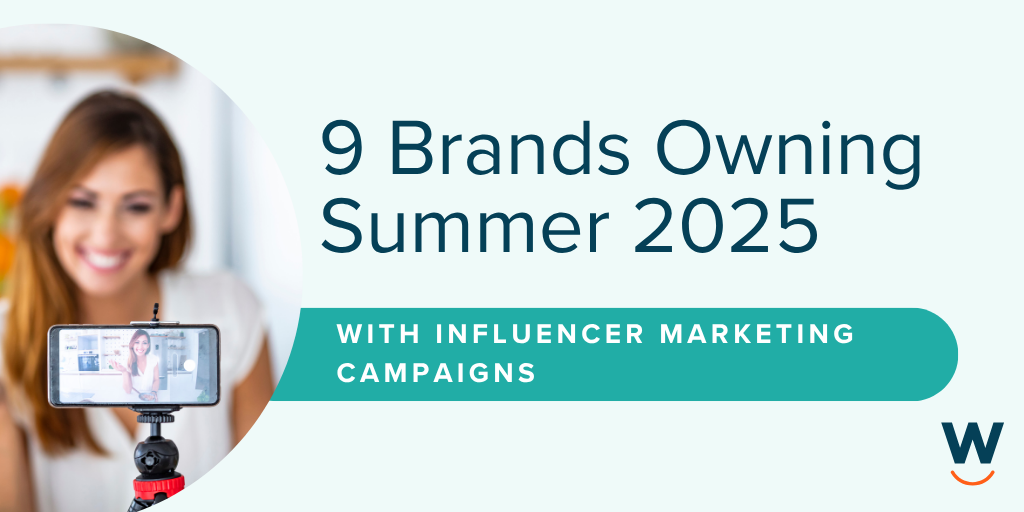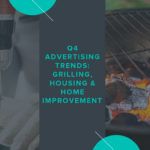
Adweek Wrap Up: Attracting Ad Budgets
AdvertisingWeek is a great place to evaluate the entire marketing industry from it’s past, to where we are today. This week-long event with nearly 100K attendees is jam-packed with discussions about current trends, challenges, and opportunities shaping the entire industry on a global scale.
This year, Winmo had an opportunity to present on the main stage and we brought a few friends along to shed light on the weapons in their sales arsenal that helps them win new business and attract major brand budgets.
Dave Currie, CEO of Winmo moderated the panel featuring three distinct perspectives: media sales, represented by Bruce Kallner, SVP Business Development & Olympic Sales at NBC; adtech sales, represented by Tyler Kelly, President at Centro; and agency new business, represented by Nicole Souza, EVP of Growth and Marketing at The Integer Group.
Each of our panelists had a unique perspective on how to break through to major advertisers, and ultimately, attract major ad budgets. The advertising ecosystem is more complex than it’s ever been, and for sellers, that means keeping up with more players, putting more irons in the fire and staying ahead of new trends in media, technology advertising and beyond.
These three professionals who are at the top of their game shared tips and tricks on what has proven successful in their new business efforts.
Check them out below:
Frequency is Key
When it comes to sales, persistence is often key. These days, contacting prospects more than once is not only okay, but it is often necessary to attract and engage profitable leads. It takes an average of 8 touches to get an initial meeting with a prospect. It’s crucial to seek out prospects through a variety of touchpoints including voicemail, email, social media and more. Our three expert panelists emphasized why frequency must be a focus in the realm of sales.
“I’ve had clients tell me that they took a phone call from a sales rep 14 times just to see how long they’d stick with it,” said NBC’s Kallner. “It became like a perverse pleasure to see how long this person will stick with it. And then they reward them with a meeting.”
So how frequent is frequent enough to be effective? “I’d say on average you’ve got to call somebody five to 10 times, and don’t be shy about it being twice a week,” said Kallner.
Centro’s Kelly echoed that point. “What I always say to my team is you could send a hundred emails and they don’t respond, you’re just doing your job. The second they respond and say ‘please stop,’ then you’re an assh****. So it’s a fine line, but your job is to continue to have that frequency, I mean we’re in advertising, we know frequency works, so as a seller you need to have that same mentality.”
“My guidance to my team is to hit 40 different companies a week, 40 touchpoints on prospects – that doesn’t include current clients – 40 touchpoints, set 5 meetings, and two demos.”
This all of course works best when you actually know you have something of value to offer the potential partner. “As long as you’re convinced you can be of value to them, persistence is key,” said Kallner.
Breaking through can get a little trickier in the agency space, where “sales” is a dirty word. “It’s less about pushing a product and more about building a relationship,” said Integer’s Souza. “Speaking engagements are a big thing for us. We really focus on trying to drive awareness and demonstrate thought leadership as opposed to telling someone we’re thought leaders and to meet with us. And so it’s a lot about marketing and awareness for us.”
Hunters vs. Farmers
Sales is all about timing: pitching a prospect when they’re ready to buy. Finding that golden opportunity isn’t easy, especially with so much competition out there. When it comes to reactive prospecting, everyone is reacting to the same industry news that already happened, and crowing the same prospect’s inbox. Getting in front of leads first is what separates the hunters from the farmers.
With respect to proactive versus reactive prospecting, Kelly noted that at Centro “I actually want all of them to be hunters. If you’re a salesperson and you’re getting paid as a salesperson, I need you hunting.” Client services is where he sees the more reactive technique come in. “I also manage a 300 person services team and that’s where you see the farming. That’s an area where we always look to strive, how to train our account services team to look for opportunities at our existing clients. But for my 150 person sales team, I want them knocking on new doors.”
From the agency perspective, Souza echoed the need for account services to be actively looking for expansion opportunities. “One of the major shifts we made a few years ago at Integer is to really broaden who are the hunters at our agency. We’re not selling a commoditized product so we try not to lean too hard into ‘we’re prospecting, we’re hunting’ but that means that your account leads have to become the hunters and the people who really nurture and grow. The account leads know those organizations better than anyone, so there is a focus there from a business development standpoint. We do things like try and bring our clients, the actual individuals, into market – something like this, like an Advertising Week panel. Just to do something where we start to think differently about our relationships with them.”
Cutting Through the Clutter
Last but certainly not least, the panelists addressed how to rise above the noise when it comes to prospecting, and stand out from numerous pitches. Cutting through the clutter has a nice ring to it, but how exactly do you go about it?
“There’s too many companies like Outreach, Salesloft, that are creating these cadences, and we all get inundated. I mean when I had a title change and became President like two years ago I was like wow, where did all these people come from?”
To break through that clutter, the panelists are using innovative ideas that stick in the mind of prospects they’re sure would be a good fit.
“My wicked cool idea that we just started doing, and now of course everyone is going to copy it, because I’m sharing it here, is working with a company called Cameo, out of Chicago,” said Centro’s Kelly. “They have a group of celebrities or even local celebrities that you can pay to do a 30-second snippet to send to whoever. So we actually had a win in Louisiana – there was a running back who was huge at LSU, and he did a quick 30 seconds, I think we paid $75 for it, and told the agency that basically our idea was the best thing since sliced bread and that they had to take a meeting with Ross because he’s such a great guy. And they did.”
“The more that you can tailor and customize things the better. It’s not something, from a scalability standpoint that you’d use for your spray and prey, but if you know it’s a perfect target for you, spending a little money goes a long way.”
Kallner noted the importance of remembering something about people and using it in a touchpoint to fuel a relationship – and he doesn’t just mean the college they went to or other publicly available information on their LinkedIn profile. “Remember that someone has a bulldog, or if they have a specific passion – just file that away. And in the future, if you come across something in your daily life that reminds you of it, it takes all of eight minutes to send them a note saying ‘hi, I just saw this and it reminded me of you.”
In Conclusion
AdWeek’s worldwide gathering of marketing, advertising, technology and brand professionals did not disappoint. Some of the brightest minds in the industry came together to share knowledge and experiences to improve the industry as a whole. AdWeek is a one-of-a-kind experience, providing insight on how to navigate the ever-changing landscape of marketing, advertising, technology, and creative spaces.
The Attracting Ad Budgets panel consisted of actionable tips and takeaways to help you and your team win new business. We hope you enjoy the prospecting secrets and find them valuable for attracting new high profile clients!





